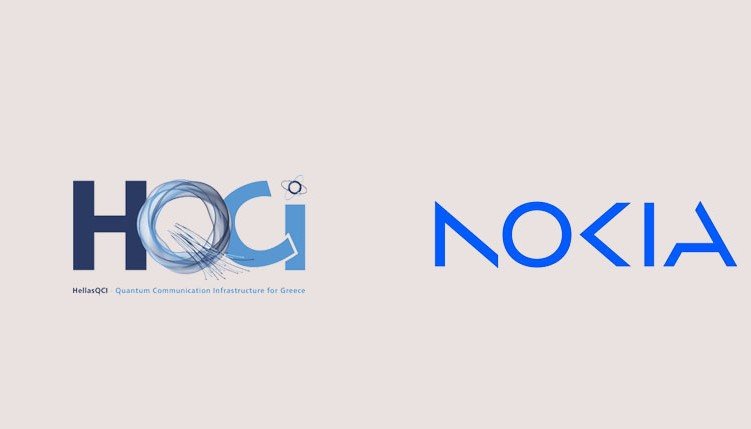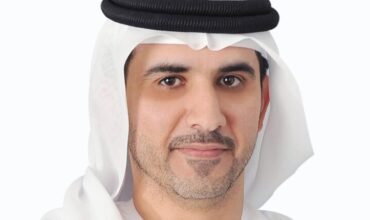Nokia has announced it has successfully completed a proof of concept (PoC) of Quantum-Safe Networks (QSN) in a complex optical network ring topology across three locations in Greece with HellasQCI, the Greek National Quantum Communication Infrastructure Consortium.
Nokia successfully demonstrated hybrid key generation using both classic and quantum physics to generate and distribute Quantum-Safe keys for encrypted optical services. The goal of the PoC was to run use cases with the HellasQCI consortium members from government, research and education, defence, law enforcement and private sector critical infrastructure owners to ensure Quantum-Safe connectivity infrastructure.
The PoC was performed on a ring connecting three nodes in GRNET’s Data Centre, the National Kapodistrian University of Athens (NKUA) Network Operations Centre (NOC), and the NKUA Department of Informatics and Telecommunications (DIT), Optics Communications and Photonic Technology Laboratory (OPTCOMMS-PTL).
The positive potential of Quantum Computing is enormous. Governments and research organisations are investing in the technology to address issues such as sustainability, defence and other societal challenges.
Enterprises are using it across industries for applications like advanced financial computations, shaping the future of electric vehicles or to better understand the impact of climate change on the power grid.
However, the development of Quantum Computing also introduces an ability for this technology to easily penetrate systems previously regarded as secure, for example by breaking existing encryption.
This threat could easily damage life-sustaining critical infrastructure. Hence, there is an urgent need to ensure networks are ready for quantum attacks through consortiums like HellasQCI who conduct rigorous tests and trials on their systems before bad actors can attempt to leverage Quantum Computing, overwriting current encryption technologies.
The HellasQCI consortium consists of 14 public organisations and private corporations and is led by GRNET as project co-ordinator and NKUA as its technical co-ordinator. GRNET operates under the auspices of the Greek Ministry of Digital Governance, providing networking, cloud computing, high-performance computing and e-Infrastructures. It connects more than 150 organisations across 50 cities and serves hundreds of thousands of users daily in public administration, education, research, health and culture.
The Nokia QSN solution showcased the value added by the Nokia Security Management Server (SMS) to orchestrate Quantum-Safe keys and provide continuous monitoring and management of quantum secured connectivity.
This particular SMS is the Quantum-Safe Key orchestrator, managing key requests and assuring Quantum-Safe services for the given crypto period. Upon continuous monitoring of Quantum-Safe connectivity service, the system’s SMS can increase secured connectivity resiliency automatically by reverting to classic physics-based keys in case of issues on the QKD layer.
Dr. Ognjen Prnjat, Director for European Infrastructures and Projects Directorate at GRNET, said: “We are very pleased with the successful completion of the PoC with Nokia, which is one of the key milestones for the HellasQCI project that establishes the National Quantum Communication Infrastructure in Greece.
“GRNET plays a crucial role in various European infrastructures for research and education, including EOSC, EUDAT, EGI, GÉANT, PRACE and EuroHPC, and we are honoured to have been given the responsibility by the Ministry of Digital Governance to lead the implementation of this innovative quantum network infrastructure as part of the pan-European Quantum Communication Infrastructure (EuroQCI) initiative.
“The PoC demonstrated the feasibility and the benefits of Quantum-Safe Networks for securing critical communications in Greece and in Europe and we look forward to continuing our collaboration with Nokia and other partners to develop and deploy an operational and secure EuroQCI.”
James Watt, Head of the Optical Networks Division at Nokia, commented: “We are proud to partner with HellasQCI and its consortium members to demonstrate our QSN solution in this challenging and innovative PoC. Test environments like this are crucial to ensure networks are ready for quantum-level cybersecurity attacks, which are inevitable as Quantum Computing becomes more accessible around the world.
“Nokia brings a structured framework and a collaborative partner-based approach combined with our world-leading networking expertise with extensive experience managing large-scale and complex deployments with multi-connectivity domain and multi QKD vendor technologies.”




